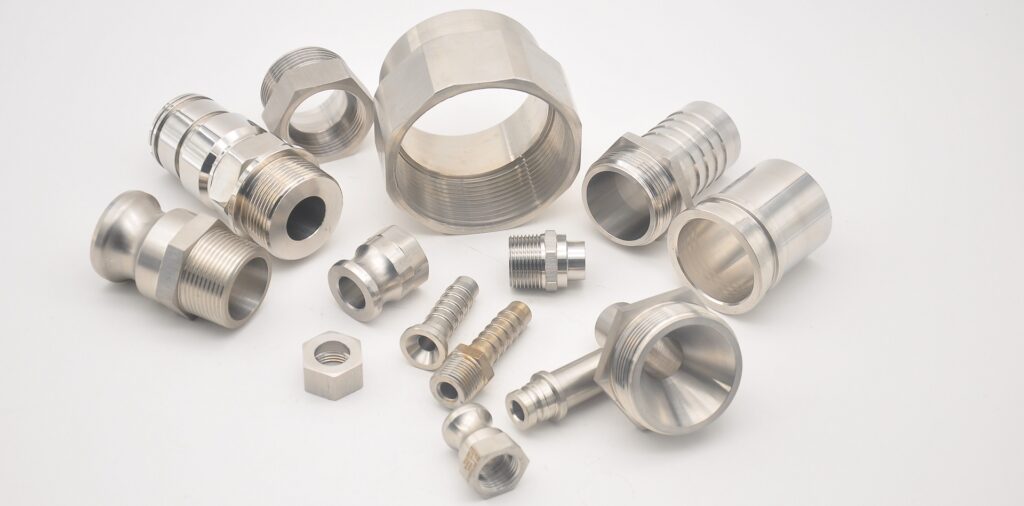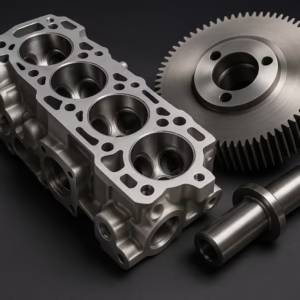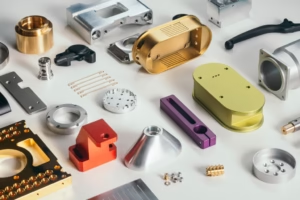Precision Components Manufacturers: Crafting Excellence in Manufacturing

Blog Details In the intricate landscape of modern industries, the role of precision components manufacturers like Prototek cannot be overstated. The demand for high-quality, precisely engineered parts has surged, driven by the evolving needs of sectors such as automotive, aerospace, medical devices, and electronics. This blog delves into the key aspects of precision component manufacturing, shedding light on the crucial features, selection criteria for manufacturers, applications across various industries, successful case studies, industry challenges, and future trends. Key Features of Precision Component Manufacturing Precision component manufacturing is a highly specialized field that demands meticulous attention to detail and adherence to stringent standards. The key features of precision component manufacturing encompass a range of factors, from material selection to quality control processes. Let’s delve into these critical features: Material Selection and Characteristics Choosing the right materials is the foundation of precision component manufacturing. Manufacturers must carefully assess the properties of materials to ensure they meet the specific requirements of the intended application. Factors such as strength, durability, corrosion resistance, and thermal conductivity play a crucial role in material selection. Common materials used in precision manufacturing include various metals, alloys, and advanced composites. Manufacturing Processes and Technologies Precision components are crafted using advanced manufacturing processes and cutting-edge technologies. CNC (Computer Numerical Control) machining is a prevalent technique that enables high-precision and repeatable production. Additionally, 3D printing has gained prominence for its ability to create intricate and complex geometries with unmatched precision. These technologies contribute to the consistent quality and accuracy of precision components. Quality Control and Inspection Methods Maintaining stringent quality control is paramount in precision component manufacturing. Manufacturers employ sophisticated inspection methods to ensure that each component meets the specified tolerances and standards. Coordinate Measuring Machines (CMMs) are used to precisely measure the geometric characteristics of components. Non-destructive testing (NDT) methods, such as X-ray and ultrasonic testing, are employed to detect internal defects without compromising the integrity of the components. Tolerance and Precision Precision components are characterized by extremely tight tolerances, often measured in micrometers. Achieving such precision requires a combination of advanced machinery, skilled craftsmanship, and rigorous quality assurance processes. Manufacturers must consistently meet these tight tolerances to ensure the proper functioning and compatibility of the components within larger systems. Surface Finish and Coating The surface finish of precision components is a critical aspect that impacts both aesthetics and functionality. Manufacturers employ techniques like polishing, grinding, and coating to achieve the desired surface characteristics. Coatings may include protective layers to enhance durability, reduce friction, or provide resistance to environmental factors such as corrosion. Customization Capabilities Precision component manufacturers often offer customization capabilities to meet the unique requirements of different industries and applications. The ability to tailor components to specific dimensions, materials, and functionalities is a key feature that distinguishes top-tier manufacturers in this field. Continuous Improvement Practices Staying at the forefront of precision manufacturing requires a commitment to continuous improvement. Manufacturers invest in research and development to explore innovative techniques, materials, and technologies. Embracing a culture of continuous improvement ensures that precision component manufacturers like Prototek remain competitive in an ever-evolving industrial landscape. In conclusion, the key features of precision component manufacturing underscore the intricate processes and high standards involved in producing components that meet the demanding requirements of modern industries. From material selection to quality control, precision is not just a goal but a fundamental aspect that defines the excellence of manufacturers like Prototek in this specialized field. Criteria for Choosing Precision Component Manufacturers Selecting the right precision component manufacturer is a critical decision that directly impacts the quality, reliability, and efficiency of the final products. Several key criteria guide this decision-making process, ensuring that manufacturers like Prototek align with the specific needs and standards of their clients. Here, we explore in detail the essential criteria for choosing precision component manufacturers: Quality Certifications and Standards Reputable precision component manufacturers like Prototek adhere to industry-recognized quality certifications and standards. These certifications validate the manufacturer’s commitment to maintaining high-quality production processes and meeting rigorous specifications. ISO certifications, such as ISO 9001 for quality management systems, are often considered a benchmark for excellence. Clients should verify that manufacturers hold relevant certifications to ensure the consistency and reliability of the produced components. Timely Delivery and Supply Chain Management Meeting project deadlines is crucial in industries that rely on precision components. Manufacturers like Prototek with efficient supply chain management systems can provide a competitive advantage. The ability to procure raw materials promptly, manage inventory effectively, and optimize production schedules contributes to timely deliveries. Clients should assess a manufacturer’s track record in meeting deadlines and inquire about their supply chain practices to ensure a seamless and reliable flow of components. Cost-Effectiveness Analysis While quality is paramount, cost-effectiveness is also a critical consideration. Clients seek manufacturers like Prototek who can deliver high-quality precision components at competitive prices. A thorough cost-effectiveness analysis involves evaluating the overall value proposition, considering factors such as material costs, production efficiency, and long-term reliability. Manufacturers like Prototek that strike a balance between quality and cost-effectiveness are often preferred partners. Reputation and Customer Reviews A manufacturer’s reputation within the industry is a key indicator of its capabilities and reliability. Clients should research and consider the manufacturer’s track record, including successful projects, customer satisfaction, and any industry recognition. Additionally, reading customer reviews and testimonials provides insights into the real-world experiences of other clients. A positive reputation and satisfied customers are indicative of a manufacturer’s commitment to excellence. Flexibility and Customization The ability to accommodate customization requirements is essential, especially in industries with diverse and unique needs. Clients should assess a manufacturer’s flexibility in adapting to specific design specifications, material preferences, and production volumes. Manufacturers like Prototek that offer customization capabilities demonstrate an understanding of the client’s individual requirements and can provide tailored solutions. Communication and Collaboration Effective communication and collaboration are critical throughout the manufacturing process. Clients should evaluate a manufacturer’s communication practices, responsiveness, and willingness to collaborate closely on projects. Transparent communication ensures that any challenges are promptly addressed, and clients remain



